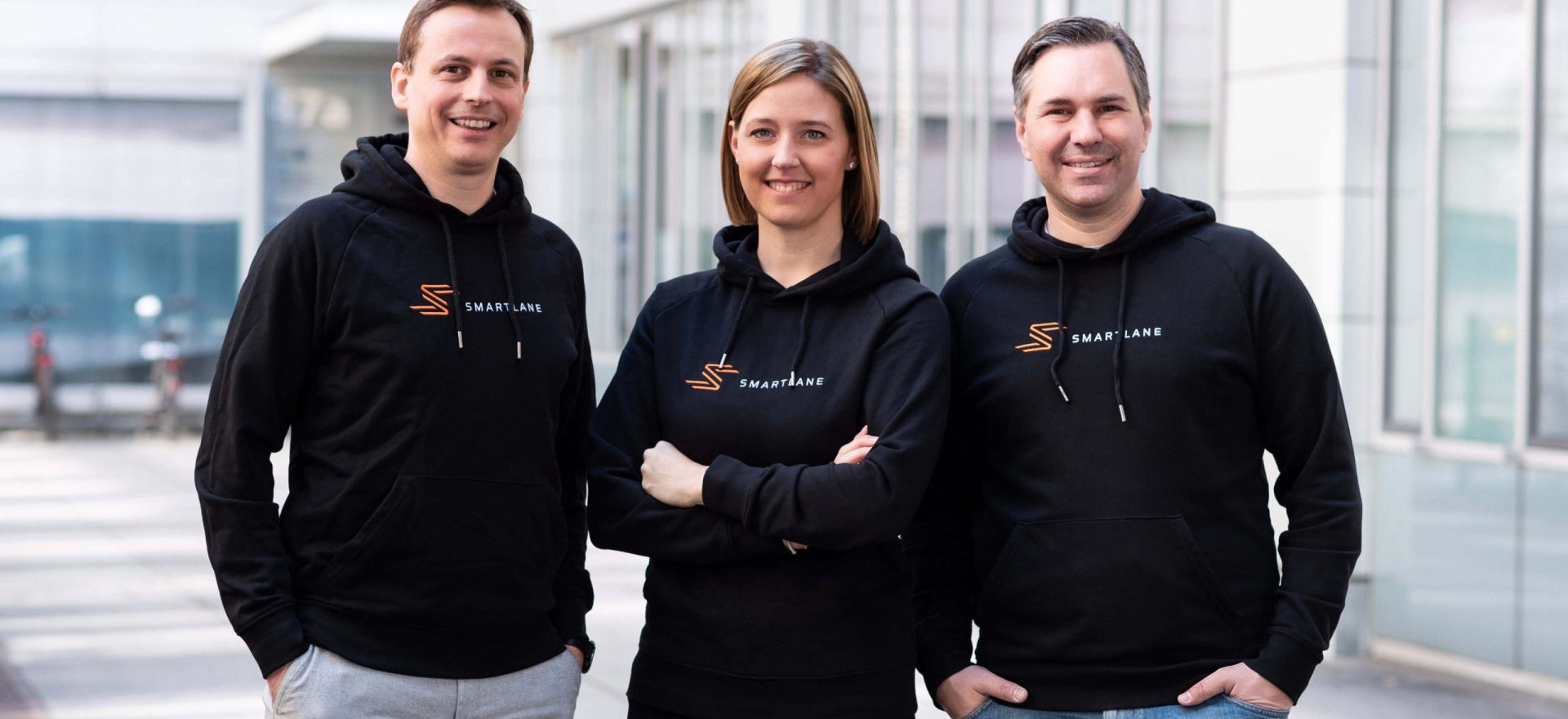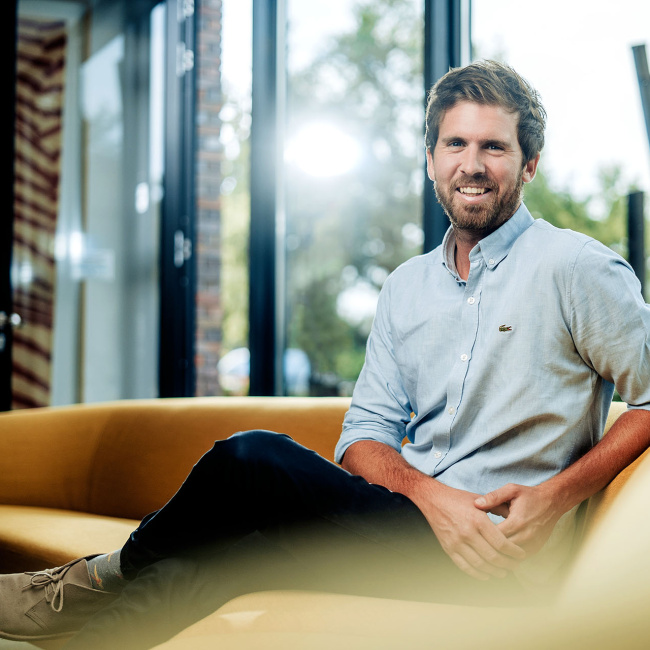Intelligent transport optimisation

Smartlane uses algorithms to handle piece goods more efficiently and just received financing in excess of €6 million. The start-up’s business model also won over the venture capital fund, F-LOG Ventures, whose anchor investor is the Fiege Group.
For a more transparent, efficient, and sustainable future transport sector, many creative minds around the world are busy looking for a fast lane. Monja Mühling and her fellow companions, Dr. Mathias Baur and Florian Schimandl, have found it. All three have developed a software they named Smartlane Transport Intelligence which, based on Artificial Intelligence, automates the particularly complex handling of general cargo. “With the help of cloud-based software, forwarding companies, hauliers and commercial enterprises can significantly reduce their handling effort and establish on-demand resource management”, the Managing Director explains.
How does this work? “Smartlane relies on over 250 parameters and restrictions to plan for everything from delivery timeframes to vehicle capacities, right down to the size of the fleet and traffic data as well as individual customer wishes. And all of this is completely automated”, Mühling says. While algorithms calculate the ideal tour, self-learning components running in the background optimise the complete process. “The software reduces error sources, which mitigates the risks and optimises the costs”, the co-founder explains.
A perfect fit
Her idea struck a chord. In addition to first clients, investors such as the Hamburg-based investment company, Next Logistics Accelerator quickly became aware of Smartlane and included the start-up in its first batch in 2018. In August 2020, Fiege took over NLA KG’s majority shareholding and ever since, the fund’s management has been in the hands of F-LOG Ventures. A four-member team under the Managing Partners Tanja Rosendahl and Tim Gudelj oversee the future development of the portfolio comprised of 16 companies.
F-LOG developed a special interest in Smartlane’s business model. “Optimisation and handling processes are a critical topic in the market”, the fund manager says. Considering the shortage of skilled workers, the potential for automation software in this segment is particularly high. “It is about being able to better control limited capacities in order to generate competitive advantages”, says Rosendahl. Last March, she and the team decided to independently invest in Smartlane.

The F-LOG Ventures team (f.l.t.r.): Michael Geers, Tim Gudelj, Tanja Rosendahl and Andreas Pott. (Photo: F-LOG)
Not just financial aid
As a typical venture capital fund, F-LOG takes a closer look at innovative LogTech companies. “We want to generate growth and advance the start-ups together with their founders in order to partake in their success together”, the expert states. In Smartlane’s case, this includes co-investors like venture capitalists Freigeist (Frank Thelen) and Ideenschaft Invest. “We maintain good contact with the industry and are in a constant exchange. That is not only important for our deal flow but also for additional financing rounds of our portfolio companies”, Rosendahl adds.
When choosing investments, the team focuses on companies that are still in their early stages, because this is where the Smart Money approach mostly pays off: “We offer not only capital but also connect the founders with our VC and logistics networks.” And this is where FIEGE comes into play. “With access to our anchor investor’s 150 years of experience in logistics, we are an ideal sparring partner for the start-ups which, in turn, are more than happy to take up this offer”, the fund manager says.
Successful co-evolution
The goal is to grow the companies over a period of a few years in the portfolio, only to withdraw from the investment in what is called an exit – usually the sale of the shareholding – at a profit. “During the investment period we support the start-up for example with the building of a team, with additional sales channels or the acquisition of more capital for follow-up rounds”, Rosendahl explains.
Since F-LOG was founded in 2021 only, the team at times feels like a start-up itself: “Our current investments have shown us that our strategy is spot on. We are now intent on becoming more and more professional, on strengthening the team, growing our F-LOG brand, and establishing a name for ourselves in the long run as a venture capital fund that specialises in LogTech”, the manager concludes.



